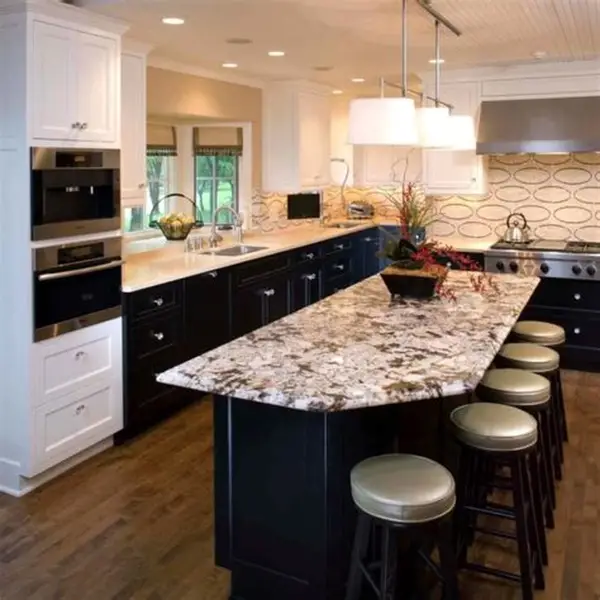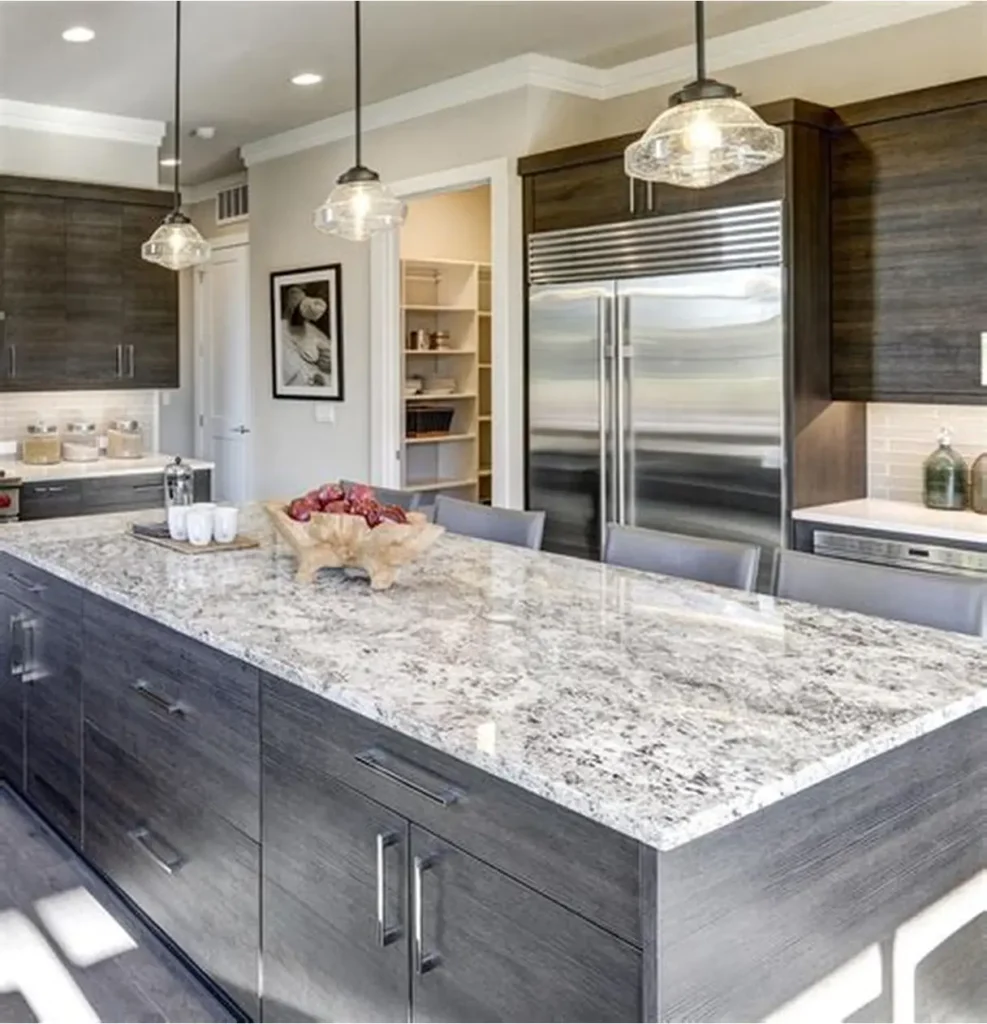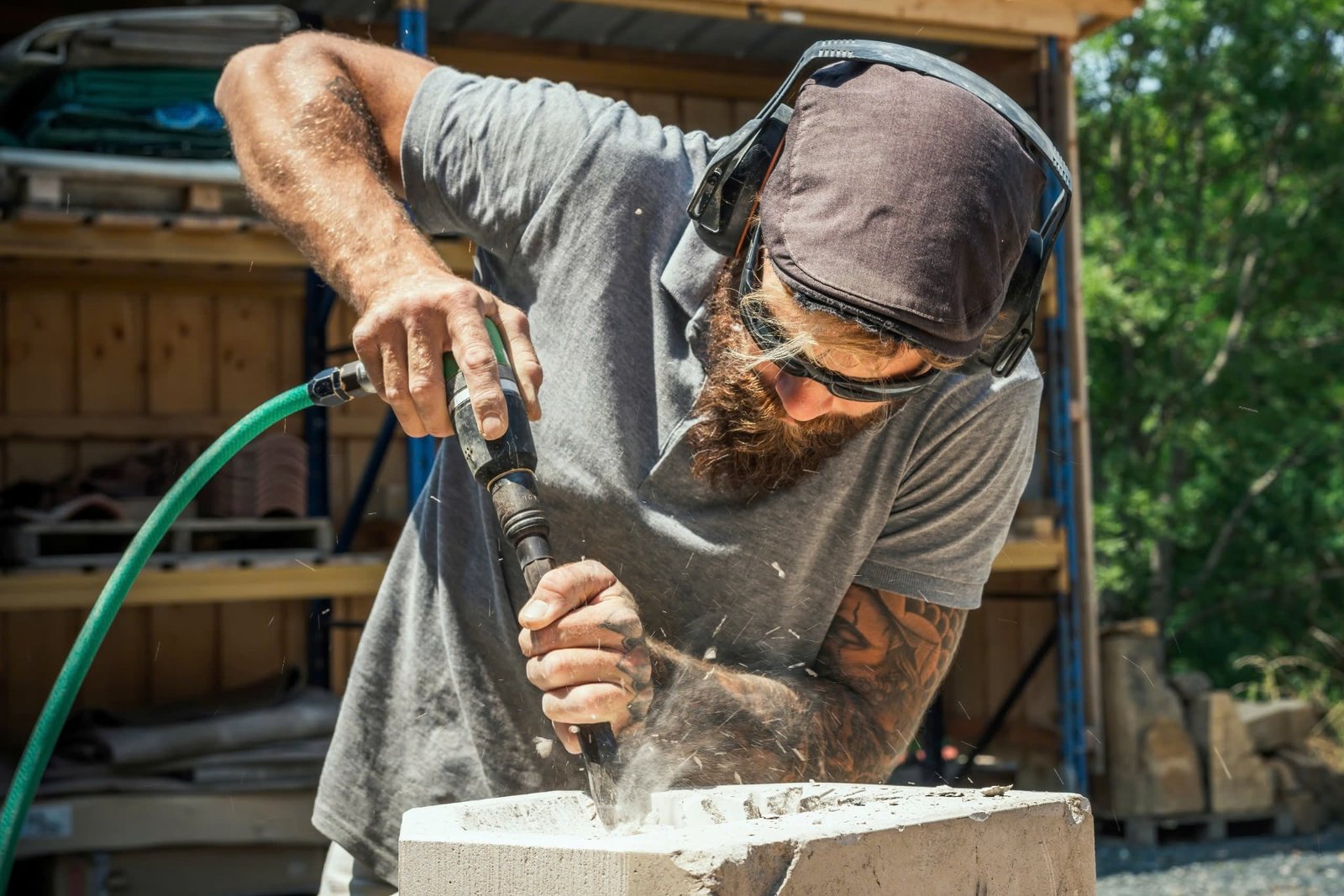
Granite countertops are a luxurious and durable choice for any kitchen or bathroom
Granite countertops are a luxurious and durable choice for any kitchen or bathroom. Whether you have elegant black granite countertops, timeless white granite countertops, or distinctive blue pearl granite countertops, protecting their surface is essential. One of the most critical steps in preserving these natural stone surfaces is using the right sealer—but what is the best thing to seal granite countertops with?
In this guide, we’ll explore the best sealers, application tips, product types, and how to ensure your granite surfaces stay stain-free, shiny, and stunning for years.

Why Sealing Granite Countertops Matters
Granite is a porous natural stone, which means it can absorb moisture, oils, and bacteria if left unsealed. While polished granite countertops offer some resistance, even they need sealing to prevent staining, etching, and dullness—especially in high-traffic zones like granite kitchen countertops or granite bathroom countertops.
Related Reading: What Happens If You Don’t Seal Granite Countertops?

Types of Granite Sealers: What Are Your Options?
Not all granite sealers are created equal. Here’s a breakdown of the most common and effective types available:
1. Penetrating/Impregnating Sealers (Best Choice)
These are widely regarded as the best thing to seal granite countertops with. They soak into the stone’s pores and form a protective barrier that repels moisture and stains without changing the appearance of the surface.
- Ideal for honed granite countertops and custom granite countertops
- Long-lasting (up to 5 years with proper care)
- Breathable formula allows moisture vapor to escape
Recommended for: All granite types, including granite countertops for outdoor kitchens
2. Enhancing Sealers
These not only seal the stone but also enhance the color and depth, especially in black, brown, and honed granite countertops.
- Adds a wet-look finish
- Excellent for deepening dark hues
Caution: Not suitable for every countertop style—test first.
3. Topical Sealers (Temporary Protection)
These create a protective layer on the surface but wear off quickly. They’re best for temporary solutions or budget fixes.
- May require reapplication every few months
- Can leave residue or alter the finish
Top-Rated Granite Sealers on the Market
Here are a few widely recommended sealers that have performed well for homeowners and professionals alike:
- StoneTech BulletProof Sealer
- Granite Gold Sealer Spray
- Trinova Granite Sealer & Protector
- Miracle Sealants 511 Impregnator
These products are ideal for both granite slabs for countertops and pre-installed surfaces. For affordable granite countertops for modern kitchens, these are solid protective options without breaking the bank.
How to Choose the Best Granite Countertop Sealer
Consider the following when selecting your sealer:
- Color of the stone: Light-colored stones tend to be more porous.
- Finish: Polished granite countertops may need a different sealer than honed finishes.
- Location: Outdoor granite countertops require UV-resistant and weatherproof formulas.
- Usage level: Busy kitchens need heavy-duty, long-lasting protection.
Curious about quartz too? Learn What Are Quartz Countertops?
How to Apply Granite Sealer (Step-by-Step)
Step 1: Clean the Surface
Use a pH-neutral cleaner to remove any grime or residue. Avoid bleach, ammonia, or vinegar.
Step 2: Let the Surface Dry
Ensure your countertop is completely dry before applying the sealer.
Step 3: Apply the Sealer Evenly
Using a microfiber cloth or soft pad, spread the sealer evenly across the entire surface.
Step 4: Let It Sit
Follow product instructions—usually between 15–30 minutes for absorption.
Step 5: Wipe Excess & Buff
Buff the surface to remove residue and enhance shine.
Step 6: Allow to Cure
Most sealers require 24–48 hours of curing time.
How Often Should You Reseal Granite Countertops?
Frequency depends on your granite type and usage:
- Light granite: every 6–12 months
- Dark granite: every 2–3 years
- High-use kitchens: annually
Bonus Tip: Learn How Long to Wait After Sealing Granite Countertops
Granite vs Quartz Countertops: Sealing Differences
Unlike granite, quartz countertops are engineered and non-porous, meaning they don’t require sealing.
Explore more:
Where to Buy Granite Countertops and Sealers
- Local granite fabricators
- Granite countertop showroom [location]
- Wholesale granite countertops suppliers
- Online retailers for sealing products
If you’re looking for top-quality suppliers, search for “granite countertops near me” or browse through local installers for the best granite countertops for kitchens.
Need lifting help? Explore our guide to Lifting Equipment
Conclusion: Protecting Your Granite Investment Starts with the Right Sealer
So, what is the best thing to seal granite countertops with? The answer lies in penetrating/impregnating sealers, specifically formulated for natural stone. They’re reliable, long-lasting, and perfect for any style—from white granite countertops in a minimalist kitchen to blue pearl granite countertops in luxury bathrooms.
Maintaining your granite surfaces through regular sealing ensures they remain beautiful, hygienic, and functional for decades to come.

